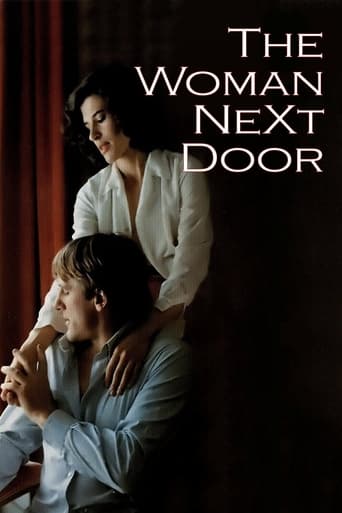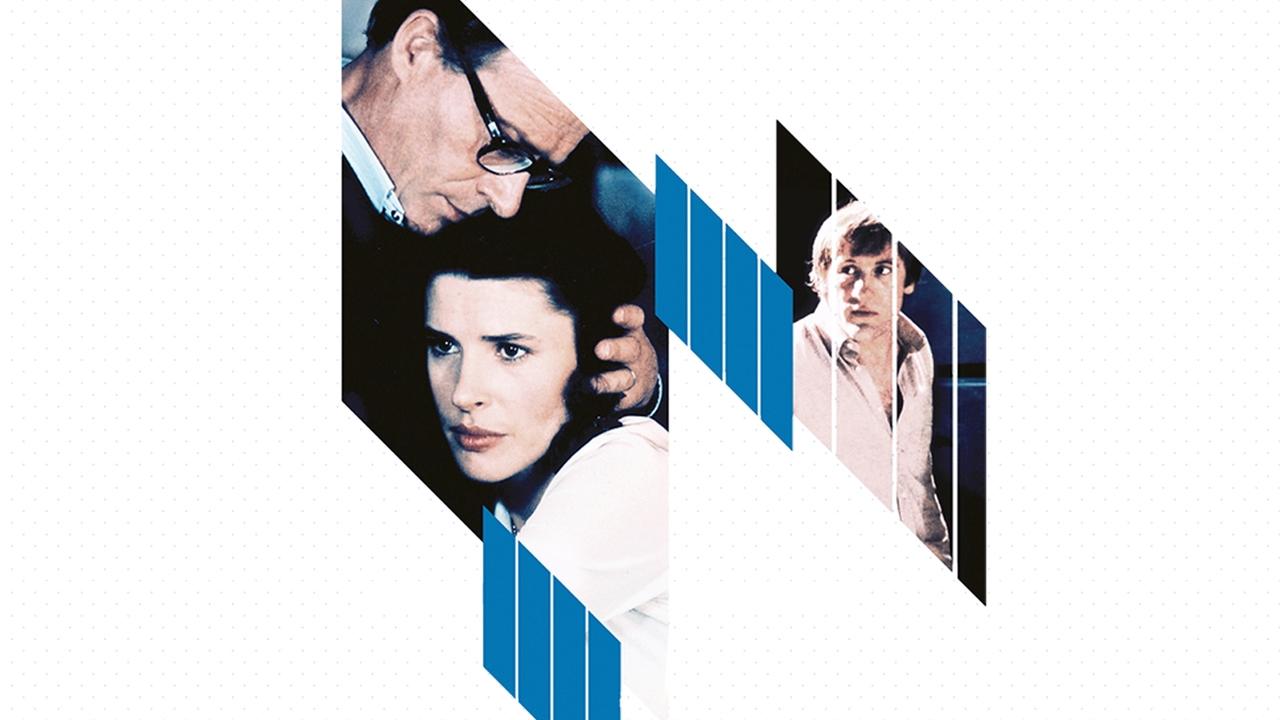thor5894
I really wanted to like this one more, it's the kind of domestic drama the French usually do well, but it just didn't work for me. Truffaut takes material grounded in realism and tries to impose a fable-like atmosphere, and ends up in an awkward middle ground. Just one example, he has Fanny Ardant faint at least twice in the movie. Really? Is this 1981 or 1921? I really didn't take to Ardant's performance, though I suspect the script shares the blame for that; she comes off less as a real person than a male construct.The story--Ardant and her husband move next door to Gerard Depardieu and his wife, the two having had an intense affair a decade earlier--is well told and holds interest, but the details are often unconvincing and there's an off-putting tone to the whole affair. For instance, Ardant and Depardieu act frantic about their secret right from the start--but why? Both were single when they were previously a couple, so there would be no scandal in being honest with their spouses, yet both insist on saying nothing. Later in the film, when the truth is exposed, and by this time the two have become adulterous lovers in the present, the respective spouses are maddeningly reasonable about the whole thing. Yeah yeah, they're French, but really, if betrayed spouses always reacted this mildly, people wouldn't feel the need to hide adultery in the first place.This vague inauthentic vibe persists right to the melodramatic ending, which also comes off as oddly emotionally flat.
writers_reign
Believe it or not I want to like Truffaut, I really do, but I wish he'd give me a little help in spots. Coincidentally the opening shot - an ambulance leaving a country house clearly laden with the dead - is not unlike the opening shot of Chabrol's latest film, The Bridesmaid. In both cases we know that a given situation has ended in tears and that we are now about to be taken back to the beginning and be privy to its playing out. Despite an antithpathy to Chabrol's leading man and an admiration and respect for Both Truffaut's leads I found it hard to get anything from the Truffaut. I don't really mind his cardboard characters and cardboard situations but if only he had gone to Galeries Lafayette and not Poundstretchers for the cardboard. I've already upset one reader who seems incapable of grasping an essential of journalism is provocation which generates those letters to the editor and understands even less that opinion masquerading as fact is one of the best ways to do it via earlier comments on Truffaut and he seems destined to suffer even more anguish in a moment when I say that I was astounded when this disciple of the 'now', whose mantra was that new is better than good actually used - and not once but twice - an IRIS OUT which dates back to D.W. Griffith. Prior to that he was using Fades extensively. Shame on you, Franny, where's all that nouvelle vague thinking. The 'story' would fit on the head of a pin and still leave room for the King James version of the Bible; Bernard Coudray (Depardieu) is living happily with wife Arlette (Michele Baumgartner) in the middle of East Jesus when the empty house next door is suddenly occupied by Philippe Bauchard (Henri Garcin) and his wife Mathilde (Ardant). 'Meaninful' glances between Depardieu and Ardant complemented by music cues as subtle as a cream pie in the kisser alert us to the fact that these two have a history. Now it's only a question of how long before they get back in the sack and one of them says 'if I can't have you no one will'. Depardieu and Ardant are class acts and they almost create believable characters but with no help from either script or direction their hands are tied. Worth seeing - once if only to learn how NOT to do it.
paul2001sw-1
A young, almost boyish Gerard Depardieu stars in 'The Woman Next Door', one of Francois Truffaut's later films. In some ways, it's a stereotypically French affair, a stylish and urbane story of passionate love. But the film itself, though nicely observed, fails to really catch fire. One reason may be the fact that their isn't much in the way of character development, not because the characters are one-dimensional but because they are fully described in the premise, and change little thereafter. We are told that the central figures are in love, but know they could not live together, and what follows is merely the logical exposition of this. Another is that they themselves seem the biggest obstacles to their own happiness. Therefore, though the film is watchable throughout, as a whole it amounts to little more than a collection of its parts, rather than a great and profound tragedy. Other work by this director packed a greater punch.
eric1
Truffaut knows who to tell a story on the screen, this is not a new story, I have seen one like this before in une femme francaise. But a big movie funs can feel better in this one, the way the scenes fade in and fade out,the deep-focus images, the music and the camera motions. I know many people don't like subtitled pictures, but this one is really worth to watch.


 AD
AD



